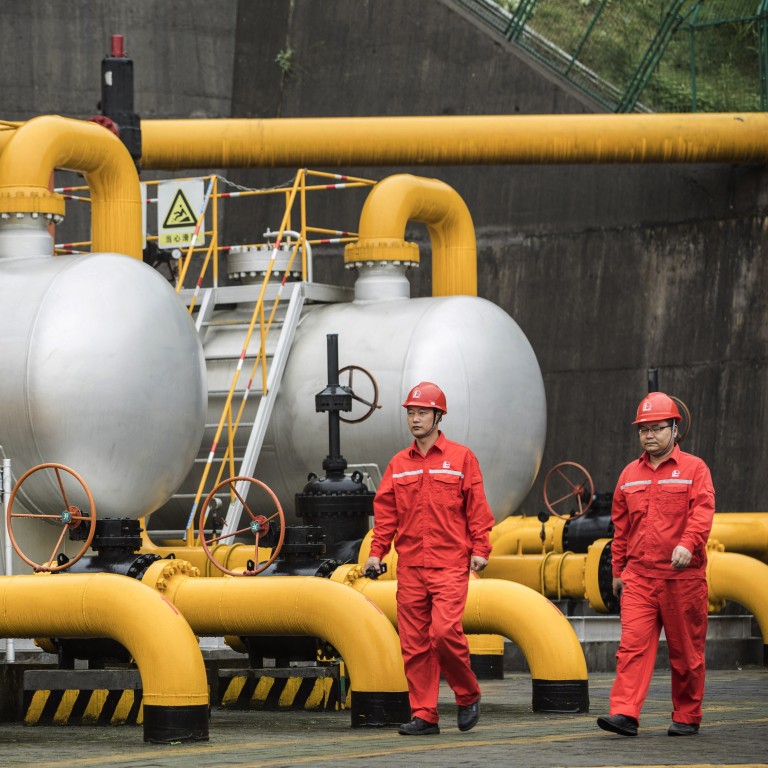
US-China rivalry exposes differences that threaten to hinder global solutions to climate change, experts say
- China needs to bring companies to the table when making policy, says Taiya Smith at a Bloomberg forum
- But Chinese speakers say state-owned and private companies are ‘developing together’
The rivalry between the US and China – on full display in their trade war – has spotlighted their fundamental difference in thinking on the role the state should play in economic development. The split is undermining efforts to tackle pressing global issues like climate change, some experts say.
“In China, the role of corporations is different. The policymaking process will often include a meeting with corporations, but they’re not at the table,” Taiya Smith, director of China for the Climate Leadership Council, said at Bloomberg’s New Economy Forum in Beijing last week.
“You want buy in. You need to bring people, organisations into the process of understanding what it means to fundamentally transform your entire energy system,” Smith said. “China’s planned economy certainly leads to some challenges here.”
The conference brought together business and political leaders to look at how the private sector could help deal with global problems like climate change.
The central government’s role in directing the economy – with a continued reliance on state owned behemoths as well as innovative private companies – has been in the spotlight since US Donald Trump started a trade war with China more than a year ago. He contends that China does not play by fairly, giving subsidies to companies, manipulating its currency, ignoring intellectual property rights, and creating barriers for US and other foreign companies.
China denies Trump’s claims and has pointed to its many – and ongoing – changes to open up to more foreign competition.
The two countries are now in talks for a partial trade deal.
The split in opinion on China’s role in managing the economy was on display at the Bloomberg forum.
Speakers from outside China warned that the government’s still heavy hand in the economy undermines the development of private companies needed to tackle such issues through breakthrough innovation and fresh ideas. In addition, Beijing makes policy without enough input from state-run companies like big oil players, they said, making solving global problems harder.
“I think generally there is a concern in the [China] private sector about a resurgence of the state, because it implies a redirection of resources from the private sector to the state sector, and it may also imply therefore a slowed innovation which might otherwise occur in a private sector that is quite dynamic,” said Charlene Barshefsky, who served as the US’ trade representative, the country’s top trade negotiator, from 1997 to 2001.
“The internal balance between state and private sector [in China] remains unsettled,” she said at the conference.
Chinese experts differed.
Xie Fuzhan, president of government-linked think tank Chinese Academy of Social Sciences (CASS), said China’s state and private companies are not working against one another, but “developing together”.
Meanwhile, Ning Jizhe, vice-chairman of China’s National Development and Reform Commission, defended China’s model, saying 98 per cent of products made in the country are determined by market forces.
While Beijing has cut the total number of companies under central government control, assets of state firms are growing through consolidation.
Such assets reached 58.2 trillion (US$8.2 trillion) last year, up from 54.5 trillion yuan in 2017. Contribution of state-owned firms to China’s GDP, meanwhile, was estimated to be between 23 per cent and 28 per cent, according to a World Bank report released in July.
Barshefsky, the former US trade representative, said the world is at a critical moment.
“We are at an inflection point – no outcome is inevitable, but two decades of careful management, of the relations between China and the West, has run its course. Today’s complexity will require a more credible and much more realistic, effective framework, for East-West relations,” she said.

